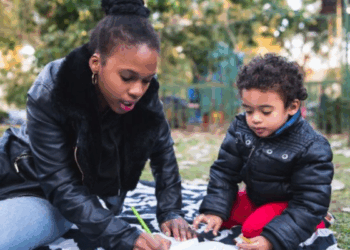The term “parentified” refers to a child who has to assume roles or responsibilities typically reserved for an adult, often due to family dynamics or circumstances.
According to the experts, following are some signs of parentification for you to figure out if your child is being “parentified” or not.

Per Joseph Laino, PsyD, psychologist and Assistant Director of Clinical Operations at NYU Langone, in an interview with Parents.com, there are two types of parentification: emotional and instrumental.
Emotional parentification occurs when a child provides emotional support to their parent, such as keeping secrets, offering advice, providing comfort or reassurance to family members, or always being emotionally available. In other words, the child often takes on the role of a confidant, mentor, or mediator within their household.
On the other hand, instrumental parentification refers to the physical aspect of parentification, where a child is given adult responsibilities such as cooking, cleaning, babysitting siblings, or even managing family finances.
While some tasks can be seen as age-appropriate chores, they morph into a form of parentification if the child is being overburdened, with the task serving the parent’s needs, rather than the child’s.

So, what are signs that your child is being “parentified”? Well, check out the experts list below.
Your child has:
- a strong desire to please adults, often at the expense of their own needs
- an Increased stress or anxiety, particularly related to caring for others
- feelings of guilt or shame
- is constantly worrying, especially about others’ emotions or well-being
- has a tendency to comfort anyone in distress, even at their own emotional cost
- difficulty asserting their own needs and desires
- a loss of childhood experiences, such as missing out on playtime with friends
- struggles with setting healthy boundaries
- feels responsible for family struggles or believing that they must “fix” things
- has a feeling of being overwhelmed by household responsibilities

Dr. Laino encourages parents and children to first identify if there is “parentification” present and then work together towards healing and fixing the situation by both:
- Set healthy boundaries
- Practice regular self-care
- Find coping strategies
- Trust yourself and be kind
“You may want to seek support from a professional, such as a mental health professional, a medical professional, or other health care provider,” Dr. Laino told the outlet. “You may also want to seek support from a trusted loved one—a relative or a friend whose judgement you trust.”







